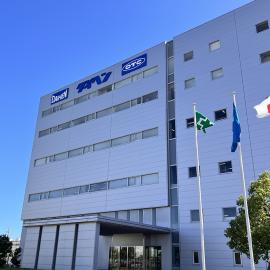Seminar talk by Jun Ueda, PhD, Professor, Georgia Institute of Technology: False Data Injection Attack Resilient Telerobotics
Date: Friday, September 13, 2024
Time: 13:30-15:00
Room: E3-306 & Zoom
Speaker: Jun Ueda, Ph.D., Professor, Georgia Institute of Technology
Title: False Data Injection Attack Resilient Telerobotics
Abstract:
In this talk, the critical issue of False Data Injection Attacks (FDIAs) on networked robot control systems and novel strategies for enhancing their resilience are discussed. The talk introduces the concept of perfectly undetectable FDIAs based on affine transformations, demonstrating how these simplistic attacks can significantly alter a robot's behavior while evading detection by conventional methods. Perfectly undetectable FDIAs can be introduced not only on linear dynamic plants but also on a class of nonlinear robotic systems. To counter this threat, a defense mechanism based on state monitoring signature functions (SMSF) is proposed, designed to be resistant to affine transformations and capable of detecting manipulations in the system's state. The talk discusses encrypted adaptive control, exploring how homomorphic encryption (HE) techniques can be leveraged to secure control signals and state information without compromising system performance. A newly proposed security feature utilizing Somewhat Homomorphic Encryption (SHE) overflow traps is introduced, which exploits the mathematical properties of encryption schemes and is triggered when increased encryption noise is detected due to computational effort performed by the attacker for FDIA. The talk also covers practical implications of these security measures for real-world robotic applications such as remote manipulators and mobile robots.
Speaker Bio:
上田 淳, ジョージア工科大学,機械工学科,教授
2002年3月京都大学大学院工学研究科機械工学専攻博士課程修了.博士(工学).1996~2000年三菱電機先端技術総合研究所勤務.2002~2008年奈良先端科学技術大学院大学情報科学研究科助手.2005-2008年Massachusetts Institute of Technology客員研究員および講師.2006~2008年日本学術振興会海外特別研究員.2008年5月Georgia Institute of Technology, Mechanical Engineering, Assistant Professor,2020年Professorとなり現在に至る. 2004年ファナックFAロボット財団論文賞特別賞受賞.2009年 IEEE Robotics and Automation Society Early Academic Career Award受賞.2015年 Advanced Robotics Best Paper Award受賞. 2021年永守賞受賞.
Jun Ueda, PhD, Professor, Georgia Institute of Technology
Dr. Jun Ueda is a Professor in the G. W. Woodruff School of Mechanical Engineering at the Georgia Institute of Technology. He received his B.S., M.S., and Ph.D. degrees in Mechanical Engineering from Kyoto University, Kyoto, Japan, in 1994, 1996, and 2002, respectively. From 1996 to 2000, he was a Research Engineer at the Advanced Technology Research and Development Center of Mitsubishi Electric Corporation in Japan. He served as an Assistant Professor at the Nara Institute of Science and Technology, Japan, from 2002 to 2008. From 2005 to 2008, he was also a visiting scholar and lecturer in the Department of Mechanical Engineering at the Massachusetts Institute of Technology. He joined the faculty at the Georgia Institute of Technology as an Assistant Professor in 2008 and was the Director of the Robotics Ph.D. Program at Georgia Tech from 2015 to 2017. He also served as the Chair of the Editorial Board for the IEEE International Conference on Advanced Intelligent Mechatronics (AIM) and as the General Chair for the 2023 IEEE/SICE International Symposium on System Integration (SII). Dr. Ueda is currently a Senior Editor for the IEEE/ASME Transactions on Mechatronics. He is the author of 'Cellular Actuators: Modularity and Variability in Muscle-Inspired Actuation' (Butterworth-Heinemann, 2017) and 'Human Modeling for Bio-Inspired Robotics' (Academic Press, 2017). His recognitions include the Fanuc FA Robot Foundation Best Paper Award in 2005, the IEEE Robotics and Automation Society Early Academic Career Award in 2009, the Advanced Robotics Best Paper Award in 2015, and the Nagamori Award in 2021.
Language: Japanese (Q&A: Japanese & English)
Acknowledgment: This seminar is supported by JSPS KAKENHI Grant Number JP22H01509 and JP23K22779 and Info-Powered Energy System Research Center (iPERC), UEC.




